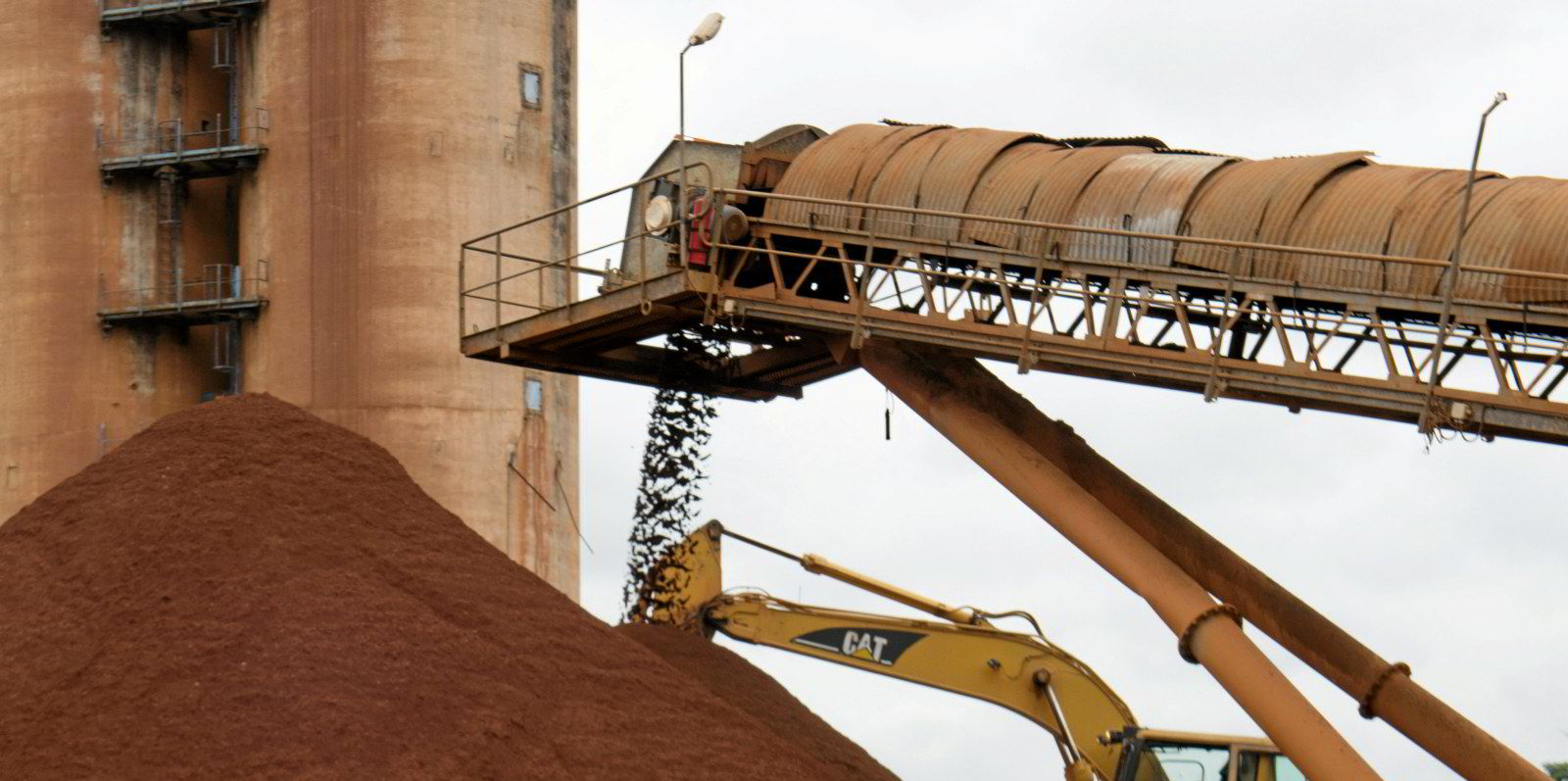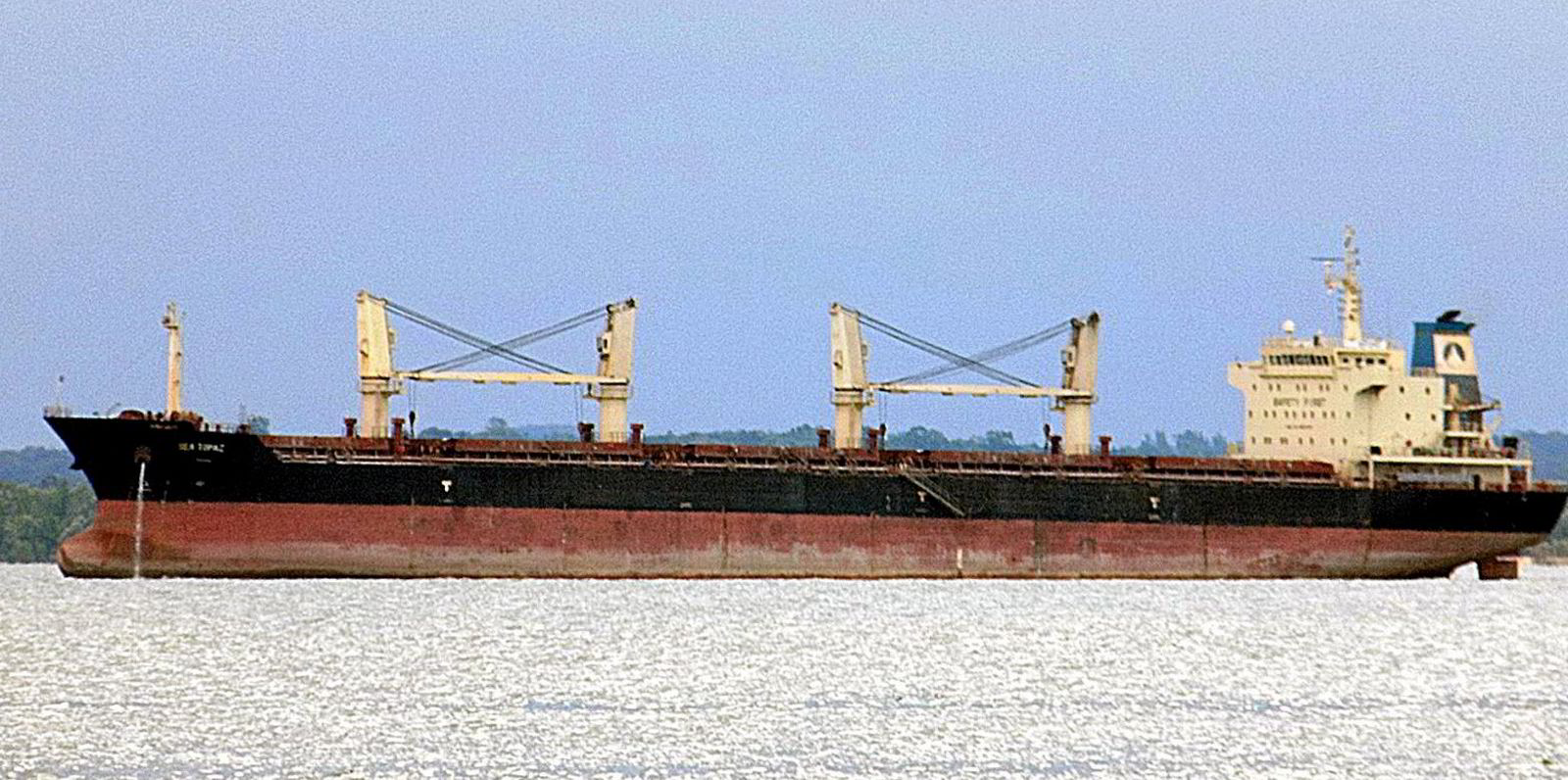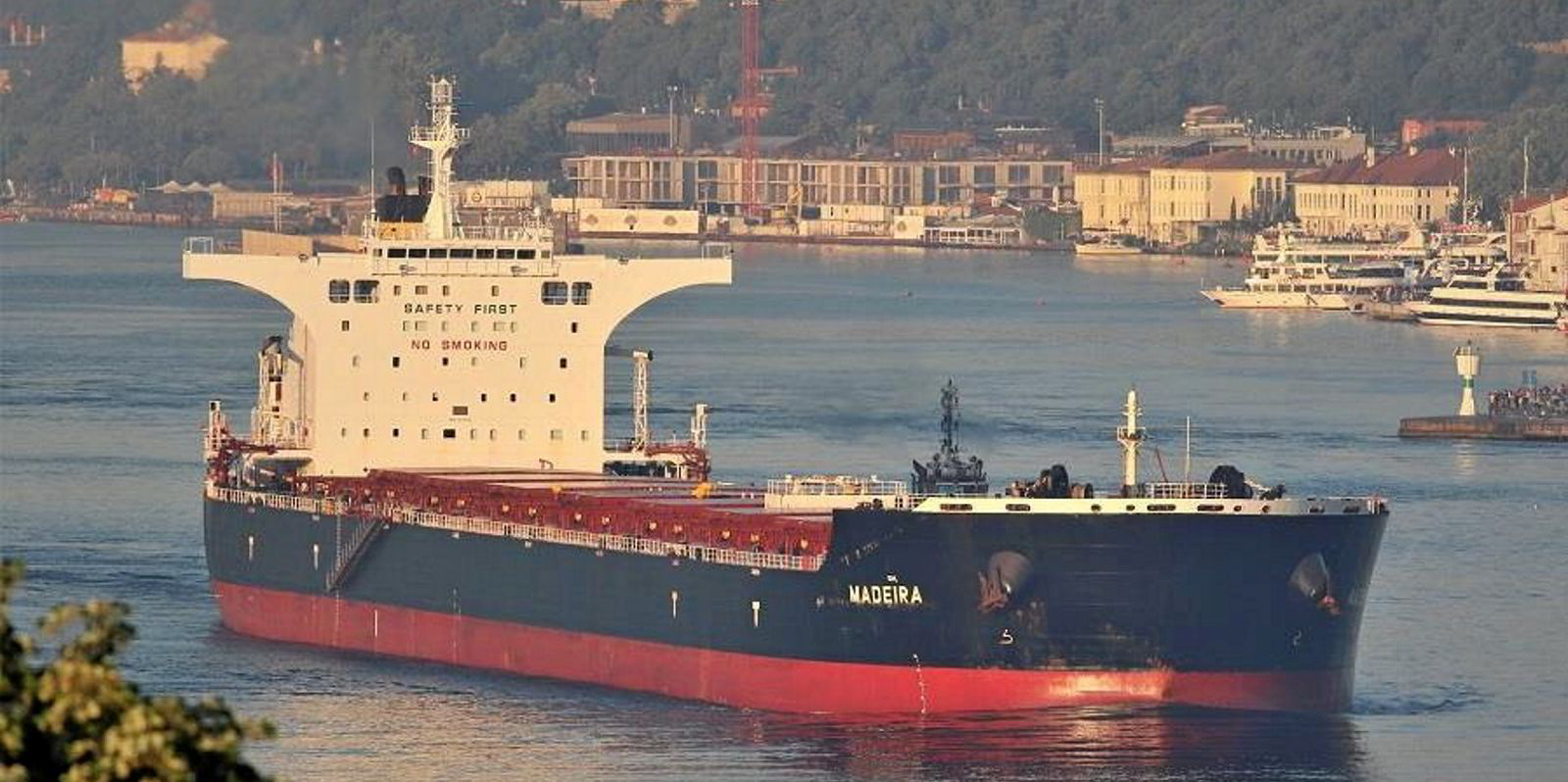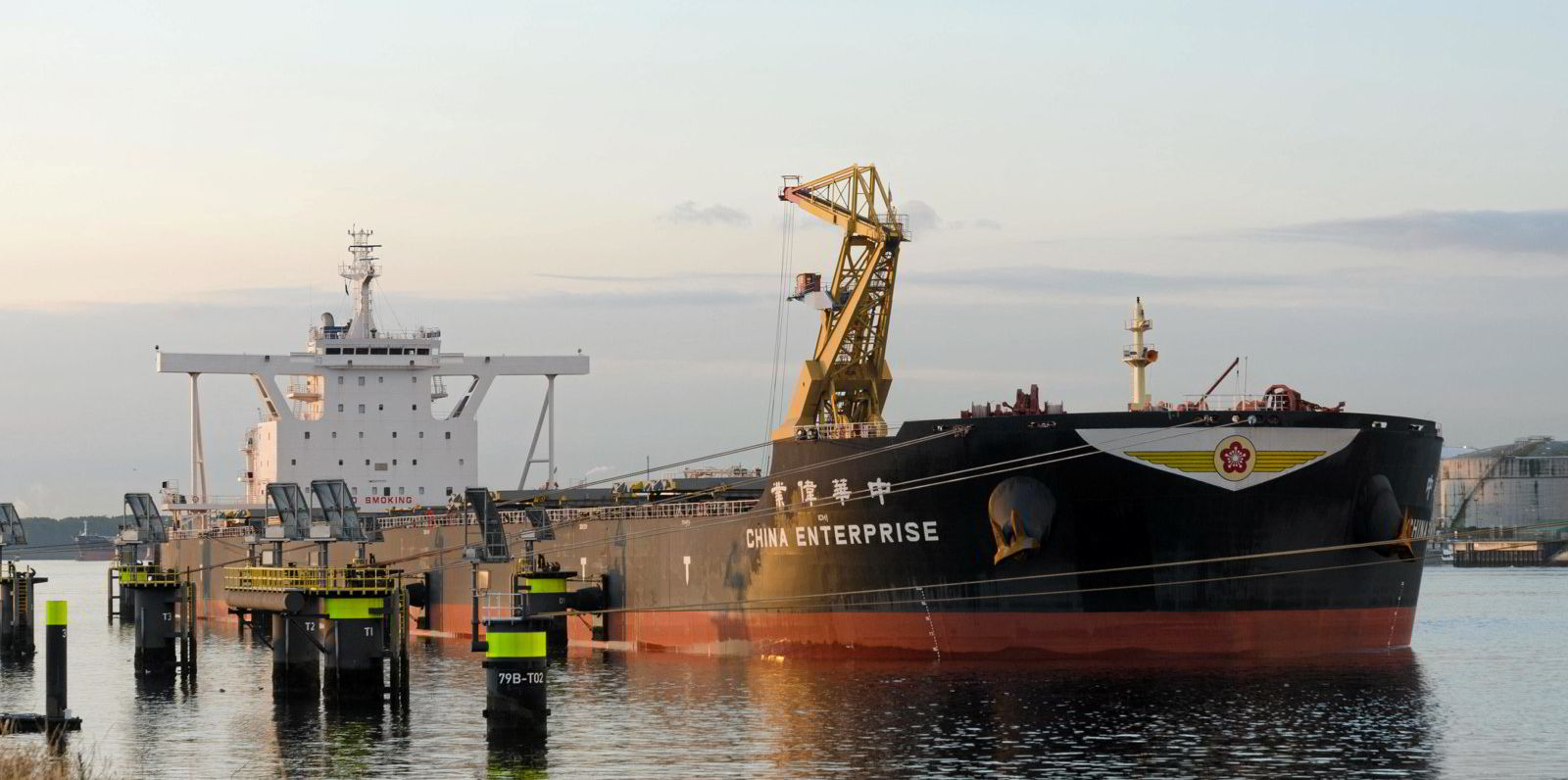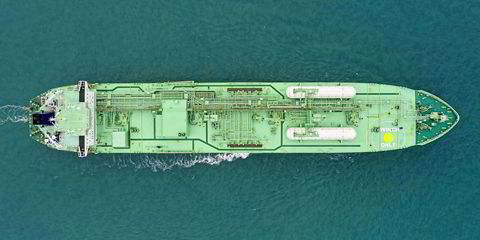China's warning that it will clamp down on "excessive speculation" in commodity markets caused prices to plunge on Monday, with iron-ore contracts hit hardest by the rout.
But analysts have told TradeWinds that bulker markets will only shift if Beijing takes a more heavy handed approach as it did in 2016 — while others believe the current clamp down could actually be good for bulkers.
Pricing on the main iron ore futures contract fell by 7% on China’s Dalian exchange to CNY 1,049 ($163) a tonne on Monday, almost 20% down on the record high reached earlier in May.
Support is needed from Chinese buyers of iron ore, without which prices will continue to fall, Derek Langston, head of research at shipbroker Simpson Spence Young, told TradeWinds.
"Although further hefty price drops will be required before the higher end of the producer cost curve is threatened — as prices reached historically high levels in mid-May — buyers can afford to step back in the immediate term," he said.
Effect on bulkers
The most immediate effect of China's crackdown on commodity speculation is being felt in the paper market for capesizes, according to Nick Ristic, lead dry bulk analyst at Braemar ACM Shipbroking.
Research firm Navigate Commodities called the Chinese government's announcement an attempt to "sooth the self-inflicted wounds caused by regular statements on steel capacity reforms".
These reforms have fuelled steel prices and margins, the Singapore-based firm said in a note to clients on Monday.
This, it said, begs the question: "Have these [Chinese] government bodies achieved any fundamental industry restructuring, aside from creating unnecessary speculation and market volatility?"
"The answer is no, not in the short term. In our opinion, allowing the 'invisible hand' to go about its business would have been the correct strategy," Navigate said.
The firm said it has modelled a "modest" global supply-demand iron ore deficit in 2021, which it said is "not sufficient" to sustain prices of above $180-$190 per tonne for the commodity.
It said it expects to see iron-ore prices of around $167 to $175 per tonne in the medium term, on the back of "robust" arrivals and shipments of the commodity during the remainder of this quarter.
June 5TC contracts for capesizes had lost almost $2,500 in value by Monday afternoon in London, he told TradeWinds, "but this is still fairly muted compared to the plus/minus $5,000 days we've been having recently".
Ristic thinks that China's warning to markets should be viewed alongside other steps taken by the country's policymakers to cool ferrous markets.
"So far we've had the local [steel] production restrictions (which had the opposite effect) and the removal of the tax rebates on exports, but the latest moves against 'speculative trading' and a crackdown on mills that might be in breach of production restrictions seem to have had a much greater effect," he explained.
The catalyst for Chinese authorities may have been last month's 6.8% producer price index, or PPI, figure, indicating that high steel and iron ore prices are being felt in the pricing of consumer goods, Ristic said.
"It's also likely that higher consumer prices for these goods are being masked by a relative fall in pork prices, which form a large portion of the basket of goods measured."
But it is not a given that that steel output will fall in line with these prices, Ristic added.
"This is the thing that will dictate bulker demand in [the second half 2021] and so far China has had little success in reining in production," he told TradeWinds.
Burak Cetinok, Arrow Shipbroking Group's head of research, agreed that the effects on bulker markets — if any — will be felt further down the road.
"We have seen similar attempts in the past where [Chinese] authorities intervened to rein in prices. After a surge in speculative activity in 2016, regulators tightened restrictions on domestic exchanges. Trading volumes collapsed and prices dropped," he explained.
"However, there is less evidence of major speculation at the moment — trading volumes have been within normal range recently. It seems to me that the tightness is primarily driven by strong demand and restricted supplies, particularly that of iron ore."
Looking ahead
Ristic said that bulker demand could be drastically affected if Chinese authorities continue to be more heavy-handed in the final six months of 2021.
"It's worth bearing in mind that China's steel industry directly accounts for about half of employment for the entire dry fleet," he said.
Cetinok, meanwhile, expects Chinese demand for seaborne commodities to weaken later this year, but rather than a steep drop he expects stabilisation after a period of exceptionally strong growth.
"We expect Chinese demand to cool later in the year as the stimulus gradually matures and the tighter property measures introduced earlier in the year start to weigh on construction activity," he told TradeWinds.
"It will probably be the fundamentals rather than the administrative interventions that will do the job for the policymakers."
Increasing demand
Research and consultancy firm Shipping Strategy —which is headed by its founder Mark Williams, ex-head of research at Affinity Shipping — thinks China's warning will ultimately be a good thing for bulker markets.
"The physical price has been rising due to increased demand for steel all around the world," the firm noted in its bulk carrier market outlook, which was published on Monday.
"In global construction markets, a 'Shortage of Everything' and rising profits are leading to an upswing in productive capacity, which we think will lead to increasing demand for bulk carriers as global supply chains for industrial raw materials and manufacturers are stretched."
